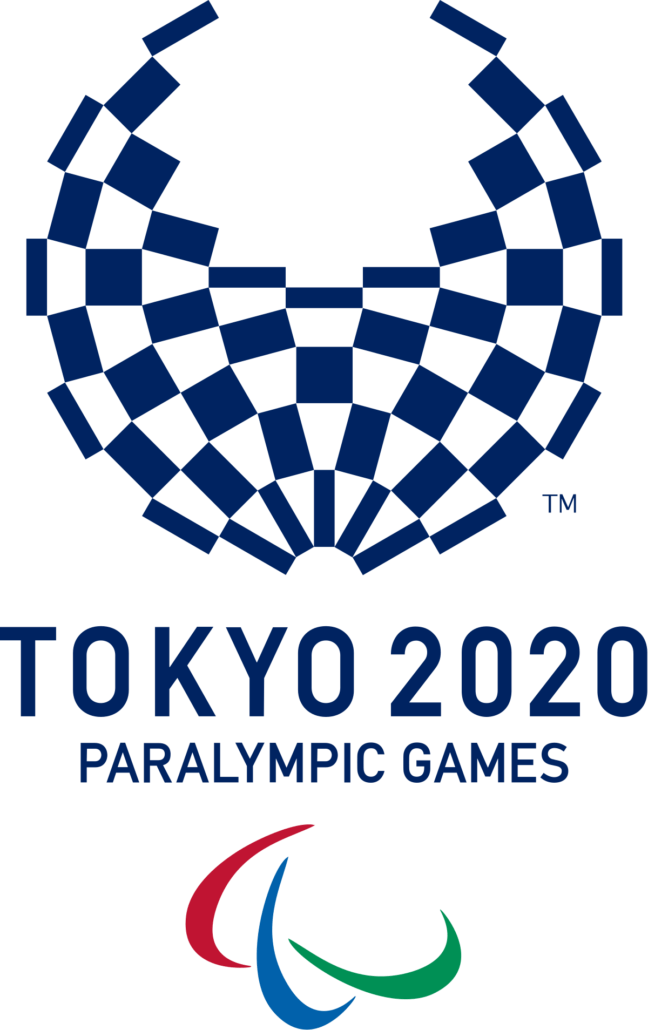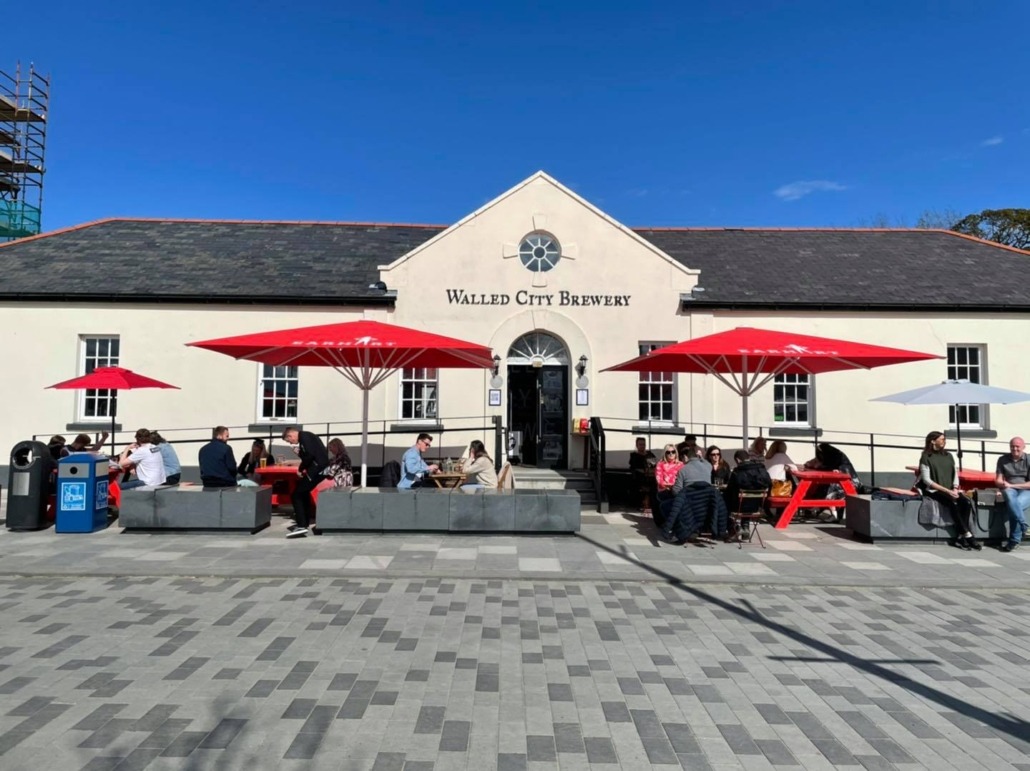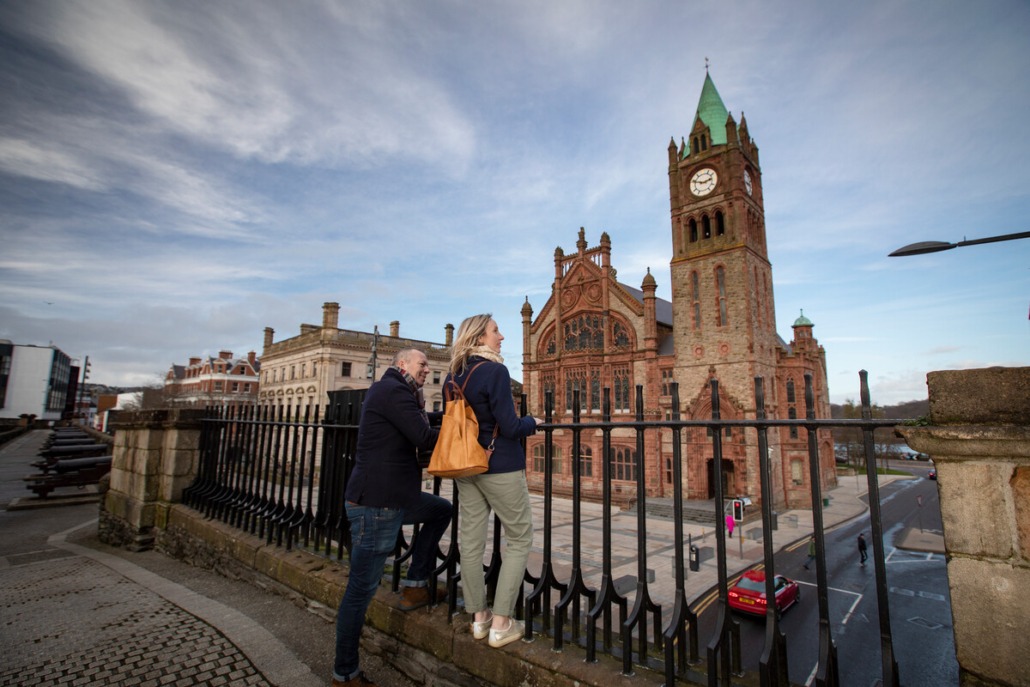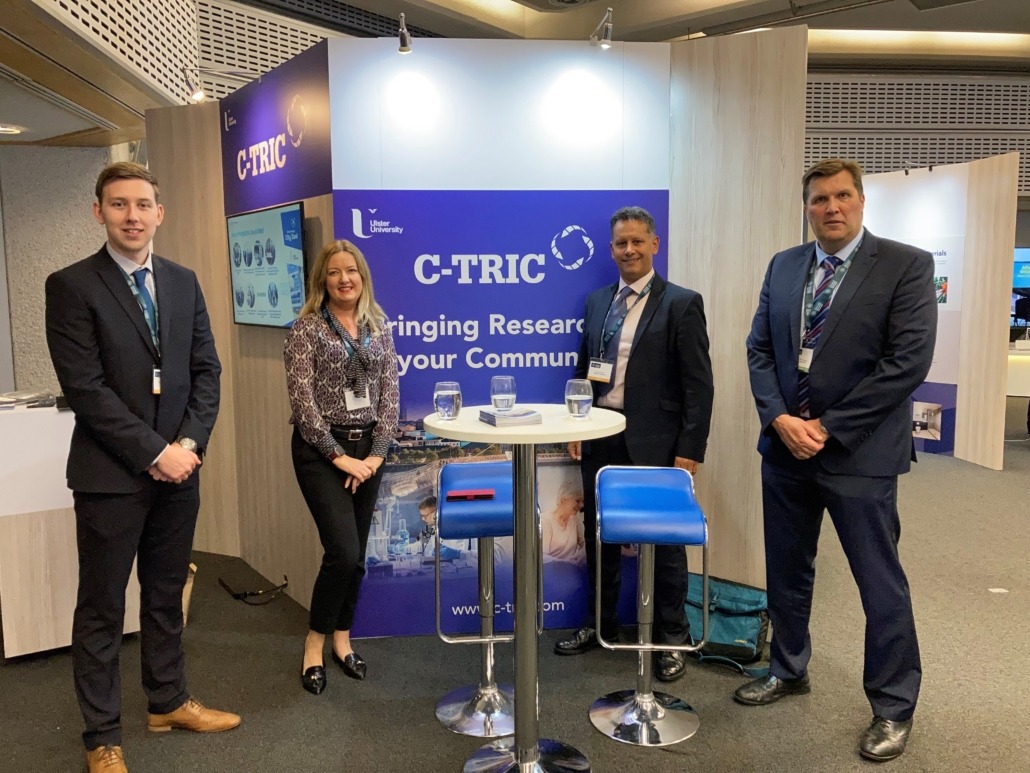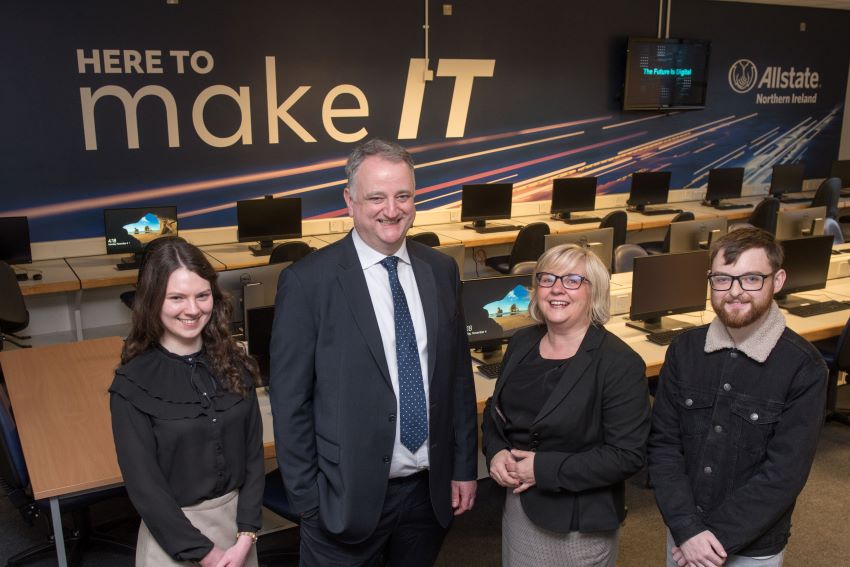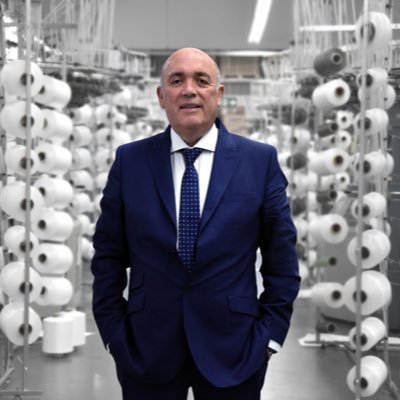Nicola Hunter had a successful career in investment banking, working as a consultant in London’s Canary Wharf before landing a place at Ulster University’s brand-new School of Medicine at Magee – the first graduate entry medical school in Northern Ireland.
The Antrim woman, who has a degree in accountancy from Jordanstown, is one of 70 post-graduate students training to become a doctor on the four-year course. Alongside her studies, the 25-year-old is also still employed part-time as a consultant with Vox Financial Partners in Belfast.
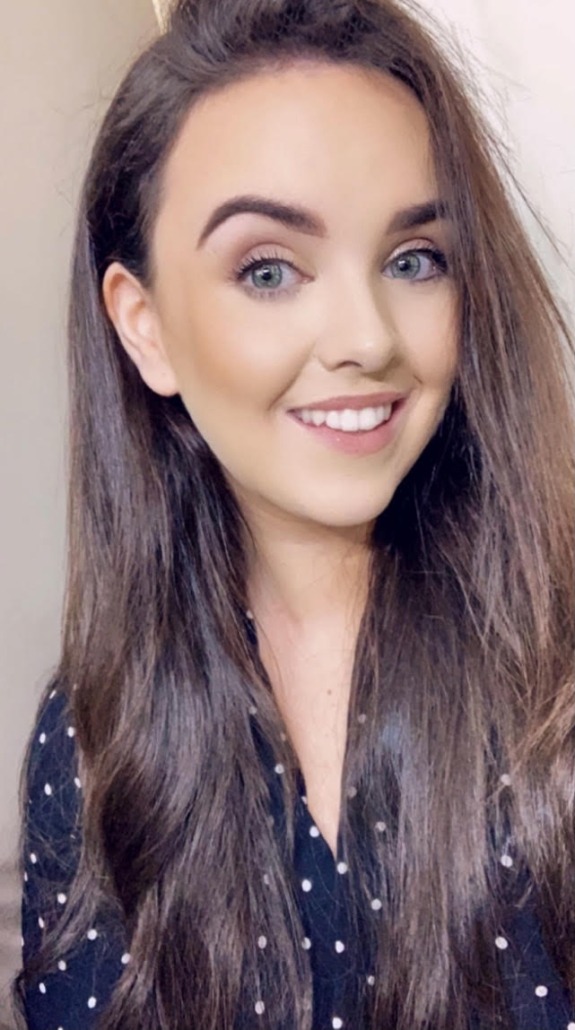
Congratulations on being part of the new medical school’s first intake! How is the course going so far?
There was so much excitement on the first day. Walking up towards the library and the medical school building, there were news reporters and TV cameras everywhere. I got interviewed by the BBC on my way in – I still haven’t brought myself to watch that back yet!
The facilities are amazing and they’ve set the course out very well – especially for me coming from a non-science background. There are quite a lot of courses where for the first two years you’re just learning the scientific aspects, whereas at Ulster we were straight in with a case to work on immediately. So, you’re getting the clinical side of it along with the science. You’re very much working off real-life examples, which keeps it interesting.
One of the main reasons I chose this course was that, yes you need to know the scientific background to be a confident doctor, but you also need to know how to talk to people. We have clinical skills groups every week for a full afternoon where you’re going through those core communication skills of how to treat a person, not just whatever disease or illness is in front of you.
Why did you make the switch from accountancy to medicine?
I’d always wanted to do medicine, but it’s so competitive to get into. I was always very good at maths, so it was sort of a spur of the moment decision during my A levels to give accountancy a go. It turned out to not be my cup of tea, but I knew it was a good degree to have. By the time I got to final year, I knew I didn’t want to train to be an accountant, but I needed a break from exams.
I worked in investment banking in Belfast for a while, did some travelling in Vancouver, then took a job working in investment banking in Canary Wharf. I was project manager on a Brexit team while I was studying for the Gamsat (Graduate Medical School Admissions Test). The hours were crazy – you were getting up, working all day until God knows what time, revising at lunchtime, and then having to revise for hours at night. But by some miracle, I passed!
How was the move from London to Derry?
London is such a fast-paced life, you’re out every night doing different things, but it’s nice to be home and get a bit of a breath back. I moved from London on the Friday and started uni on the Monday. The first day home I was straight to the beach. Getting out and being able to walk in the fresh air, and not be surrounded by traffic and skyscrapers, is fantastic.
Derry has that homely feeling. People here actually want to stop and speak to you in shops and cafes, they’ll chat away to you, so it was really nice to come back to that. I’m looking forward to exploring the beaches up here properly and going to the bars and restaurants here.
Will you bring any skills from your previous career into medicine?
In consultancy, you’re used to working in an environment that is high pressure and long hours. I think time management and knowing how to balance those things will help massively. I’m still working part time for Vox, they’ve been very encouraging and accommodating. letting me work very flexibly.
How do you find studying medicine during a global pandemic?
You want to be able to help; I suppose that’s one of the main reasons for wanting to be a doctor. So Covid didn’t really put me off in any way. I’m looking forward to being out on the GP placement and even in the hospital.
What are the other students like on the course?
It’s very diverse, and the age range is broad too. There are people from quite a scientific background – biomedicine, pharmacy, a few nursing students and physios, and then we have people who’ve done social work, and people me who did something completely different like accountancy or business. It means when you’re in a group looking at a case, there are so many different ways of thinking that you just wouldn’t get on an undergraduate course, where everyone’s done science A-Levels and they’re all starting fresh.
Have you thought about what type of medicine you’d like to specialise in?
I’d be leaning towards something like emergency medicine, A and E. I clearly love to be stressed! Or some sort of surgery perhaps – Ear, Nose and Throat surgery has always appealed to me.

